Illegal gold miners: Villagers contend with crime, health hazards
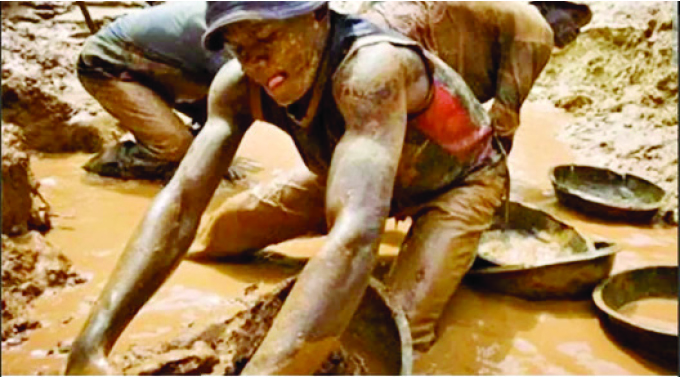
Yoliswa Dube-Moyo, Features Editor
Odd-looking people who seem to appear out of nowhere are a common sight along the Beitbridge-Gwanda highway as they hitchhike between the border town and the mining town.
Often, they appear washed out and listless under the sweltering Matabeleland sun.
They have backpacks swung over their shoulders and frantically flag down cars along the highway.
Many of them are illegal gold miners who have made the bush their home.
A significant number of the illegal gold miners live in makeshift shelter with no running water or ablution facilities.
For many of them, there’s no toilet better than the bush but this has left the illegal miners at odds with villagers in surrounding communities.
There are high cases of open defecation in rural areas, particularly in Matabeleland, with fears that the practice could derail the country’s attainment of an upper middle income status by 2030.
Villagers have often complained that illegal miners expose them to health hazards due to open defecation but their complaints seem to fall on deaf ears.
“It’s not pleasant to see,” said Ms Sithandazile Siziba from Dubane village, adding that the illegal miners are not discreet.
“We’ve often complained to the local councillor but there doesn’t seem to be a solution in sight. Besides it being unsightly, we worry about the spread of disease because of this,” said Ms Siziba.
Another villager, Mr Richard Nare from Mapane said illegal gold miners had not only come to exploit their minerals but have invaded their villages as well.
“This is why you see an increase in crime. When some of them can’t get the gold they’re looking for, they end up stealing. People are constantly being robbed, cattle go missing and there’s also the problem of open defecation,” said Mr Nare.
He said an urgent solution was needed to tame illegal gold miners and curb the vices they bring to communities.
“These people have no homes because they’ve come here to look for gold. Most of them don’t stay for long in one place but during the time they’re around, they’re problematic to us,” said Mr Nare.
Open defecation is the disposal of human waste in fields, forests, bushes, open bodies of water or other open spaces.
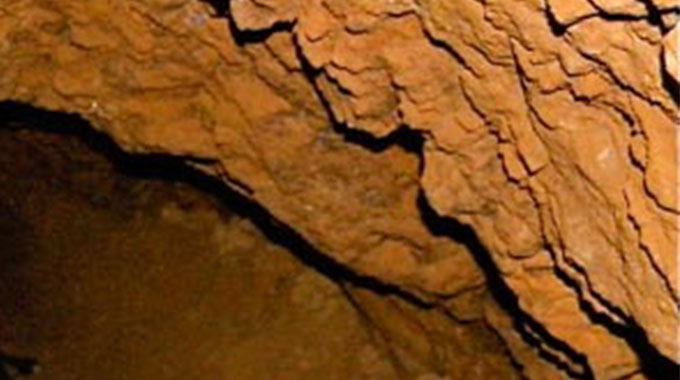
Illegal-mining
Rural communities are lagging behind in sanitation and hygiene issues as less than 20 percent of public facilities have hand-washing mechanisms in place, in addition to the challenges presented by open defecation.
At the institutional level, water, sanitation and hygiene (WASH) is recognised by the provision of usable and safe toilets.
There are no hand-washing facilities in most institutions such as schools, health facilities, business centres, churches and community halls.
According to a recent WASH co-ordination report, health institution incineration is less than 50 percent in eight provinces across the country.
Matabeleland South provincial water, sanitation and hygiene sub-committee chairperson, Mr Moment Malandu said the major gaps in the province were as a result of water shortage and illegal gold miners who proliferate open defecation.
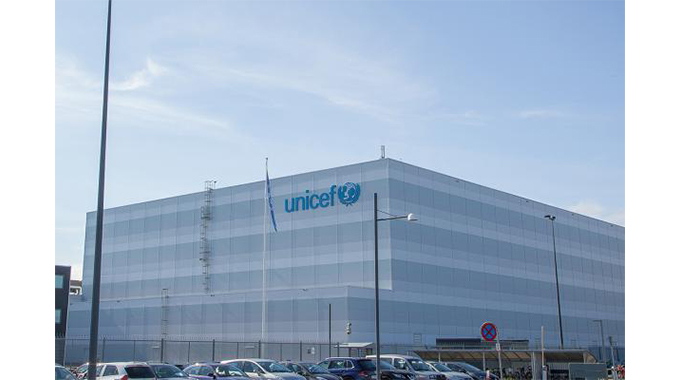
Unicef
“Sanitation goes with water and in Matabeleland South we have serious water problems in certain areas particularly during the dry season. What worsens the matter is that most of our dams have since silted or burst their walls such that they no longer hold water. As a result, people and livestock share the little available water meaning that at the peak of it, people have to ration water,” said Mr Malandu.
“This province is gold-rich and as such, there are so many illegal gold miners who migrate across the province. Where they are, there are no toilets, there’s open defecation everywhere and no one has found the formula of taming them. You can’t tell them to build toilets.”
He said legislation was needed to tame illegal gold miners.
“The shortage of surface water can be addressed by way of building or repairing our dams so that we have water for livestock and people can use the hand-pumps. But on illegal gold miners, we need political weight by way of legislation. No one can tame illegal gold miners except legislation,” said Mr Malandu.

Ministry of Health and Child Care
He added that in schools, girls were disadvantaged due to the unavailability of water and girl-friendly toilets.
“Schools still share boreholes with communities and in such cases you find that communities are given preference over the school, which affects girls more. Most schools don’t have girl-friendly toilets although there are certain donor organisations like Unicef putting up toilets. This is, however, still on a small scale but there is progress,” said Mr Malandu.”
Matobo District Medical Officer Dr Matthew Mthunzi said open defecation was a health risk as it exposed people in downstream areas to water borne diseases such as typhoid and cholera.
He said it also carried risks of spreading neglected tropical diseases such as bilharzia.
“As a ministry, many efforts have been made to ensure that every household has a toilet and to eradicate open defecation. We work with the district development committee and vulnerable households are assisted to construct Blair toilets,” said Dr Mthunzi.
According to the latest Zimvac report, Matabeleland North and Matabeleland South provinces have the highest rates of open defecation in the country. Binga has the highest rates in Matabeleland North province while Beitbridge has the highest rate in Matabeleland South.
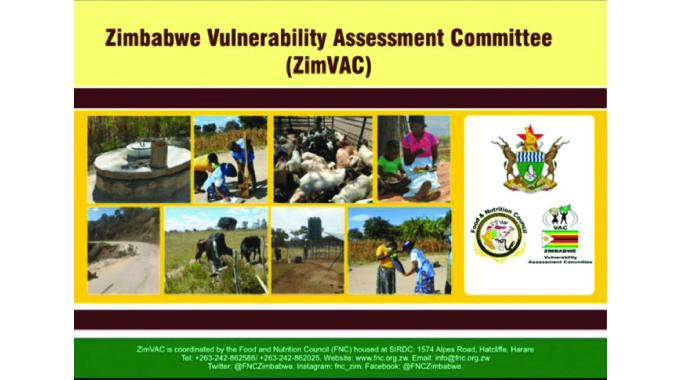
The Zimbabwe Vulnerability Assessment Committee (ZimVAC)
The highest percentage recorded of bush toileting is 40 percent and only 59 percent of Binga households have toilets.
The report also noted that the proportion of households without hand-washing facilities at their toilets was more than 80 percent in all districts in the country.
The proportion of households accessing water from improved sources is 77 percent, it said.
However, Mangwe and Kariba have high proportions of households accessing water from surface water sources.
According to the report, access to water at national level was still a challenge with indications that villagers in most parts of the country still travel long distances to fetch water.
“Nationally, there was an increase in the proportion of households travelling distances of more than 1 km to the main water source from 16 percent in 2019 to 20 percent in 2020.
“The highest proportion of households travelling distances more than 1 km was in Matabeleland South (33 percent) and the lowest in Manicaland (nine percent),” reads the report.
In a move to address the challenge of open toileting and improve sanitation and hygiene in rural communities, Government, in partnership with the European Union, is set to construct 6 000 self-driven household latrines.
About 150 community latrine builders and 60 schools will be reached with inclusive sanitation services under the programme which is being implemented by Unicef in collaboration with the Ministry of Health and Child Care.
The project is being implemented under a 13,8 million Euro grant spanning over 32 months. – @Yolisswa.


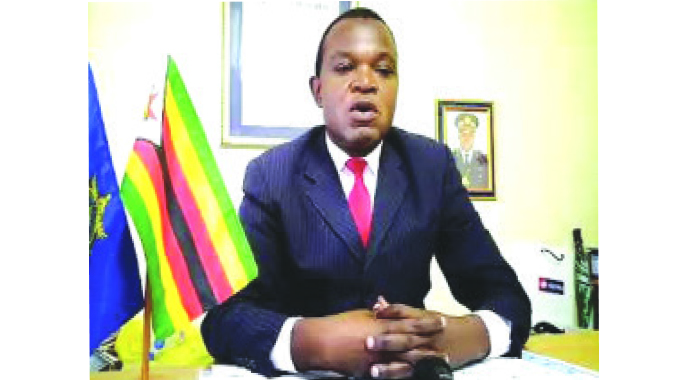

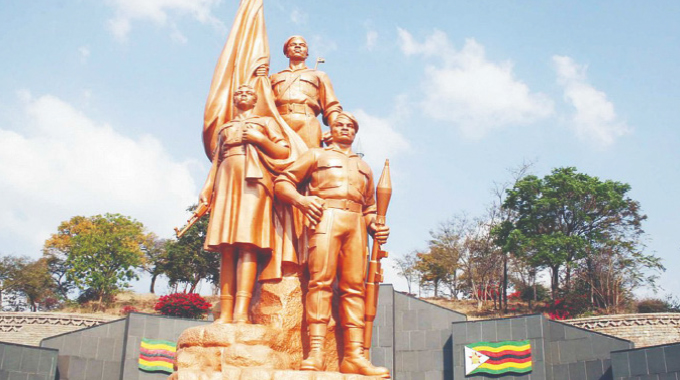
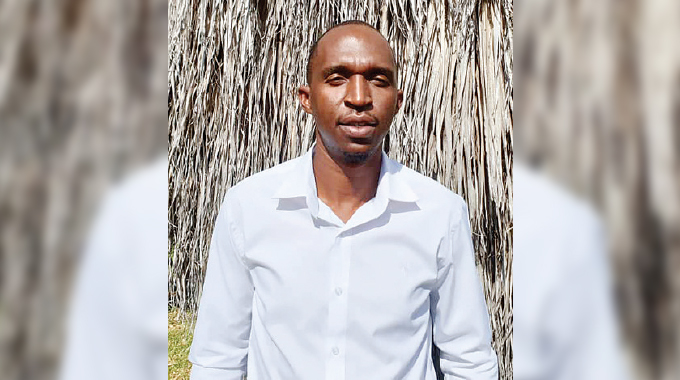






Comments